#hurrah for weak plot devices
Explore tagged Tumblr posts
Text
Lessons for the MonsterVerse
by Bunnypwn Gold
I have always been a big fan of Godzilla. I’ve been watching the movies since I was a kid. Now that they’re making new movies again, there’s a lot to be excited about and look forward to. Recently, I re-watched the newest one from the American MonsterVerse, Godzilla: King of the Monsters, as well as the last film from the Millennium era, Godzilla: Final Wars. Both films are big, ambitious, and include some major flaws, one of which they have in common, or at least they have flaws with overlap. While the MonsterVerse, so far, is great and is on track to continue that trend, Final Wars suffered greatest from this shared flaw, and so I am here to set out what the MonsterVerse needs to do to avoid self-destruction: take itself seriously.

Briefly, I want to provide a review and synopsis of King of the Monsters. So spoilers, it’s really good. Five years after Godzilla made landfall in San Francisco and fought against the parasitic MUTOs, Monarch is struggling to figure out what it wants to do with the Titans, as the monsters are now known, while the government and military are pressuring Monarch to kill them all. At the same time, one of their own scientists, Emma Russell, betrays them to assist ecoterrorist Alan Jonah in awakening the Titans with a bioacoustics device called the ORCA so that the Titans can spur regrowth in the environment and undo anthropogenic climate change. They revive Ghidorah in Antarctica, who then awakens all the other Titans still sleeping around the world at once, thus precipitating a conflict with Monarch and Godzilla for the crown. The film sets out to cover a lot of narrative ground while introducing several important elements to the series, and all the while it held together some solid character work for its main cast. Based on the new, expansive mythos that this film lays out—with the many new Titans and the abandoned Hollow Earth society discovered in vast underground caverns which used to live in harmony with the Titans—it looks like things will only get more exciting, and the future of the MonsterVerse is set out effectively and in grand style.
Godzilla: Final Wars is also about a large amount of monsters fighting for control of the Earth, feature monsters trapped in Antarctic ice, and ends with Godzilla fighting Ghidorah, but that’s where the similarities end. Final Wars was released in 2004 as the commemorative 50th anniversary film for the franchise. In it, the Earth has been defended from monsters for decades by the Earth Defense Force, who managed to trap Godzilla in ice in Antarctica years prior. All the other monsters around the world attack at once in the present, and the EDF was unable to keep up until the Xiliens arrived from space, removing the monsters and promising to make a peaceful alliance with humanity. In reality, the Xiliens were invading the Earth in order to herd humans like cattle because they need to eat human mitochondria to survive, and they were secretly controlling the monsters. So the heroes free Godzilla so he can help them fight the aliens and their army of brainwashed monsters. The plot also involved mutant humans and a fake rogue planet that was also somehow an actual asteroid that Godzilla later blows up. It’s a mess of a movie. That aside, it’s clear the film is trying to borrow elements from the three previous eras of Godzilla movies. It took an edgier look from the majority of the Millennium movies (from 1999-2004). The use of serious, formidable super vehicles is like the various super planes from the Heisei era films (1984-1995). However, the element borrowed from the Showa era films (1954-1975) is where it falters: campiness. The difference in this film compared to the Showa films being that they purposefully made Final Wars campy, despite the opportunity they had and despite the tone of the Showa era movies.
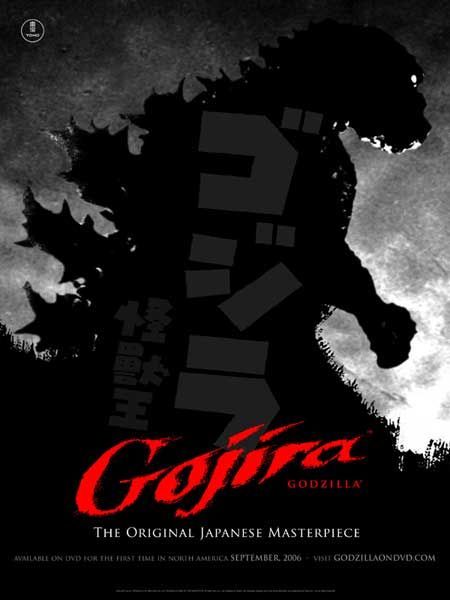
The original film, Gojira, is a very serious and tonally heavy film depicting the horrors of the modern era, with rapid industrialization in post-war Japan, the advent of the Cold War arms race, and the reason for that arms race, nuclear weapons, with the one man capable of killing Godzilla horrified by the devastation such an ability would grant. This movie and its first sequel were the only Godzilla films made in black and white, which impacts the way they look and how their special effects come across. After a several year hiatus, Godzilla returned to the screen to fight King Kong, this time in color. Seeing those monster suits and the limited special effects capabilities in 1960 of a B-list sci-fi flick in color really emphasizes how phony it all looked at the time. Throughout the Showa era, Godzilla shifted from an entirely villainous character to an erstwhile hero, and though the movies never stopped being presented as dramatic, they were made with an acknowledgement of how they look despite the drama and seriousness the creators otherwise wanted them to have.
Over time, of course, special effects improved. Starting with the Heisei era of films, Toho was able to produce much better suits and visual effects, and so they resumed making their movies with the kind of drama and seriousness that they had wanted all along. The Millennium era began in response to the 1998 American Godzilla, which depicted the titular monster with CGI, in contrast to the Toho tradition of using suits. The Millennium era was the last hurrah to suitmation effects, and these films, overall, looked great, probably the best that a giant monster movie can look with people in suits. Accordingly, they also hold up the more dramatic tone of the Heisei era while allowing each creative team the freedom to make the standalone Godzilla movie they wanted to make. The exception to this is Final Wars, which, as previously said, was not serious at all. Despite the successes of making serious, dramatic monster movies since 1984 and the ambitions of the Showa era’s large and imaginative canon, Final Wars decided to celebrate five decades of filmmaking by using cheesy comedy, camera work that screams “we had to edit heavily to make our actors look like action stars,” and what may very well be the least convincing acting of the entire series. The only person on set who seemed to understand any of this is alien commander X, who looked like he was being goofy on purpose, instead of on accident like the rest of the cast. Final Wars had the same opportunity as the rest of the Millennium era had to present a serious, dramatic battle for the fate of the Earth, and wasted it with aliens that seem completely unqualified to invade another planet and cramming most of their monsters into throwaway fights with Godzilla that lasted on average less than a minute.
This purposeful camp and goofiness of Final Wars is presumably meant to provide a lightness and humor to the film. This is where it overlaps with King of the Monsters, which ventured into the modern era of ironic, self-aware humor to provide levity. Borrowing from the MCU, King of the Monsters cracks wise during dramatic moments relatively often, in an attempt to lighten them up. Unfortunately, the jokes they go with are the weakest material in the film, and they do more to undermine the dramatic tension than enhance the film or provide levity. It’s like the scene in Thor: Ragnarok when Korg says they can rebuild Asgard, and then it blows up more, so never mind; or Hawkeye explaining how ridiculous his fighting robots with a bow and arrow is to Scarlet Witch in Age of Ultron. Maybe those are funny jokes, but they do more to undermine the dramatic tension than they add in humor, and both have the capacity to turn parts of the audience off by poking holes in the premise. It’s rather insecure and shows a lack of confidence in the work to stand on its own merits despite critics or easy jokes from the peanut gallery. This brand of humor gave us moments in King of the Monsters like Sam Coleman mishearing Ilene Chen saying “Ghidorah” as “gonorrhea.” It’s really not that funny, it wasn’t a moment that needed lightening up, and there’s no reason he would have misheard her since he was standing within ten feet. It ultimately undermines a moment in the film for an Asian woman to demonstrate her expertise by locating vital information about the threat at hand. But yes, Sam, I guess monsters sometimes have slightly silly-sounding names, like Ghidorah, which is based on the Japanese pronunciation of hydra, a very popular and well-respected mythical dragon.
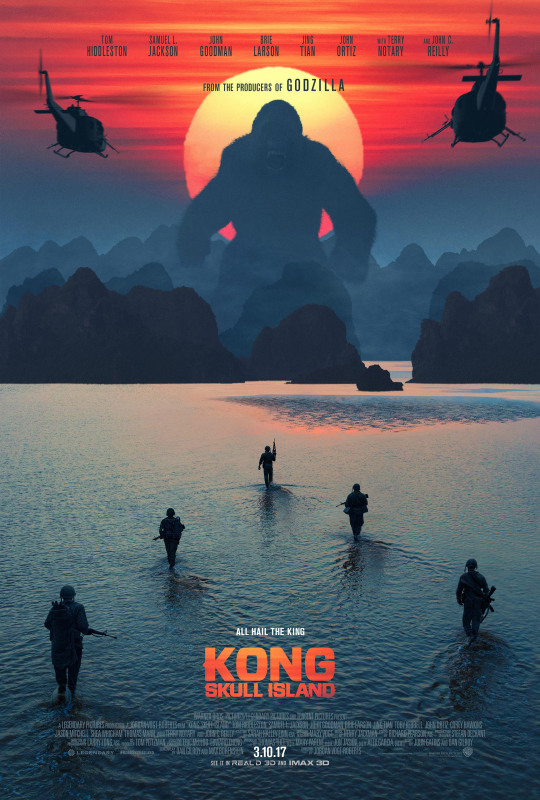
The 2014 Godzilla film that started the MonsterVerse was enjoyable, but didn’t quite live up to its potential. That’s part of the reason I delayed seeing Kong: Skull Island far longer than I should have. When I did see it, I was amazed. I expected it to be good, and I heard great things about it, but it was far better than anything I could have imagined it to be. It was a truly great movie. After seeing it, my hopes and expectations for the MonsterVerse skyrocketed. I don’t think these expectations have been let down yet, and I expect them to be satisfied moving forward. However, the one thing I wanted most going into King of the Monsters was for them to lean into the tone and style of Skull Island more. In certain respects, I think they did, and the ambitious mythos being built here is far more substantial than anything in the Godzilla franchise so far, which usually has stuck to “monsters keep showing up and fighting.” The dramatically absurd tone, though, was what they lost by using the ridiculousness of what’s happening to make quick, weak, sometimes self-aware jokes instead of to highlight the intensity of the drama experienced by the characters. In Skull Island, when the squad had to fly their planes through a permanent thunderstorm, Sam Jackson’s character started quoting a speech about how the righteous men will win by not backing down and so inherit the Earth. The speech makes the whole thing feel even more ridiculous than a permanent thunderstorm already is, and in doing so amps up the drama and tension. This ultimately makes the arrival of a giant gorilla, which the audience is expecting to see, much more impressive and intense. That’s what I wanted for King of the Monsters. Yes, there are ridiculous aspects to giant monster movies, but the characters are living it, not watching it and thinking, “This crazy.”
Having this more serious tone is also important in really hitting the audience with the larger thematic power of the film. In Skull Island, the way Sam Jackson didn’t want to back down from killing Kong, even after seeing that it’s pointless and even detrimental to the troop, is reminiscent of the way America is currently stuck in multiple seemingly never-ending wars. At least part of the reason people don’t want to leave Iraq and Afghanistan is because they don’t want to create another Vietnam, the war that this film centers around on purpose. Having that tension of a dedicated army colonel who was just forced to “abandon” his war amplifies the drama of the other characters wanting to understand the problems of the natives and come to a real solution to their problems, and it all works because of how it resonates in the current political climate. The Godzilla side of the MonsterVerse so far is focusing on climate change, which, while abstract for far too many, is also a very real and pressing concern for a lot of people, paralyzing at times. Seeing the dramatic steps needed to fix the problem almost makes Alan and Emma’s plan in King of the Monsters feel heroic. The film is filled with images of crumbling, flooded American cities, and Ghidorah, an alien creating imbalance in nature a la humanity thinking itself separate from nature, is literally a living hurricane. There’s a lot of strong, serious, intense potential to make such a movie really meaningful. If they had taken themselves more seriously, it would have had this level of impact. It really is sad that they squandered this potential on silly jokes and a story arc for their generic, useless white man hero, Mark Russell. Like I said at the beginning, it’s still a good movie, but I can so clearly see how much better it could have been, too.
To me, dramatic movies making fun of themselves in important scenes always comes across as insecure, like filmmakers can’t simply make their movie first, they also have to preempt the internet to protect their egos. As the MonsterVerse moves forward, my biggest piece of advice is to do what Skull Island did and take itself seriously. We live in a time when a lot of previously niche franchises and genres are getting more spotlight due to the demands of studios wanting more high-action, effects heavy movies to sell huge on the international market. As these genres, once mired in cultural neglect and seen as silly and childish, come into the limelight, they both prove they always were to be taken seriously and poke fun at themselves to prove they know they shouldn’t be. I get the appeal of ironic, self-aware humor and wanting to be silly at dramatic high points, because it can be very fun and, when used properly, be incredibly funny; look to Thor: Ragnarok for an overall great example. But besides issues of improper use, this kind of humor is arguably at saturation at this point. It’s being misused and overused to the detriment of otherwise good movies in an attempt to compete with Marvel, who remains the poster child on this. So MonsterVerse, let Marvel, Disney, and all those imitators try to outdo each other by proving they can make more fun of themselves before Honest Trailers get to them. Just have fun making movies about giant monsters with the kind of drama and seriousness only modern special effect can give them, and use the ridiculousness of it all to amp up that drama instead of undermine it. Get over people calling you a nerd and just do your thing. As they say, being cool is all about confidence.
#Godzilla#king of the monsters#kong#skull island#titans#ghidorah#final wars#movies#monsters#giant monsters#marvel
10 notes
·
View notes
Text
airlock grades the Michalis archetype
next in this series, we line up the characters who are spitting on our faces and calling us bitches now, but were petting cute dogs just a moment prior. that’s right, it’s the Camus archetype’s archrival: the Michalis!
(do note: under cut are spoilers for… everything, and also a significant amount of me criticizing or blamming characters that you might like. you’ve been warned! but if you’d still proceed, then I shall brush you aside like the pebble you are in the grand scheme of my plans-)
a foreword
I’m going to need a working definition for this one as well, so here goes: by the reckoning of this listing, a Michalis is a secondary character who is characterized as virtuous, well-liked, or otherwise distasteful to fight against, but who still must be fought against, not due to the tragics that compel a Camus, but because the Michalis bears a severe flaw that overpowers the good qualities and will ultimately choose evil because of it.
here it goes!
you will adress him as king michalis of macedon
(7/10)
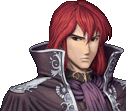
the original article delivers pretty well! often better intentioned than he might seem, he’s proud and reckless, and it constantly lands him in lousy situations -- whether he’s fighting his own family or getting straight-up killed because he deadass thought he had a chance against Gharnef. sure, jan.
he’s not the most compelling one in this list, but as that rare character who feels thorougly driven by his own personality and not the demands of the plot on a given day, he’s definitely on the better end of the archetype.
classist michalis
(2/10)
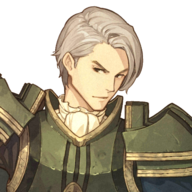
yeah...... this one’s another shot off the hoop for Valentia’s newer villains. when he’s not around, every character around will drop to their knees and beg you to go easy on the poor guy; when he’s around, he’s virulent far beyond what his sob backstory could possibly excuse. he thorougly fails to garner the sympathy the game is convinced you should have for him, and while some of his earlier scenes land with spectacle, he rapidly shrinks into an irrelevant appendage of Berkut’s and meets his end in a pointless, weak death scene.
the DLC maps do a heroic job of making him sound like something other than an annoying tool for once, but you know shit’s not going well if you need DLC just to make your character even a little bit less tasteless.
hungry michalis
(10/10)

sure, he’s hardened, vile, and deserves scarce sympathy for some of the deeds under his belt. but damned if he isn’t the most genuine villain in this list. born to a world that relentlessly spits on him and his, he spits back with all of his power, that the saliva of the world might run out and leave something better for the next ones up.
there’s something unique and incredible about his arc: for all the unforgivable atrocities he commits, he may genuinely have left the world a better place than he’d entered, but still, his end is not a tragedy; rather, his end is the final step needed in order to make things right for good and all. there’s no one else in the franchise who functions so effectively as a self-made villain.
and fuck Veld for encroaching on that perfection-
... I said he was a camus-michalis hybrid, right
(5/10)

but I’m not writing the entire analysis again, just read the Camus post
marqualis
(5.5/10)

this is maybe a little bit of a stretch; Darin is definitely not written as a virtuous or even halfway sympathetic character -- but he’s still given an undeniably human core that’s meant to set him apart from the literally inhuman secondary villains he rubs shoulders with, such as in all of the times he grows hesitant in the face of Nergal’s plans before Ephidel butters him back into compliance. plus, there’s a subtle sympathy to be had in seeing his family tearing itself apart because of manipulative villains, even if the entire family is dicks.
like the original one, he’s not an incrediblly compelling character, but his personality definitely sells his arc of the plot, and it’s hard to deny that taking him down for good and all at the Dragon’s Gate gets to be a moment of some power -- one that feels tragic, but right.
merchalis
(7/10)

hard sell again, but, as amoral and cruel as this fellow is, there’s an underscore of neutrality to him that makes him much more of a balanced character than the usual power-hungry villain; sure, he’ll do anything for the sake of his ambitions -- but that includes ignoring Lyon and potentially screwing him over! he bears with him that refreshing strength of being an antagonist who drives things his way and not just the plot-convenient one, similar to others on the list here. and albeit vague, his alluded-to past is somewhat intriguing, to boot!
darling michalis
(10/10)

undoubtedly up there in the pantheon of Magvel’s most incredible writing moments is the arc of this sick motherfucker. he perfectly disarms you for a few moments before the shoe drops and then it never stops dropping.
there’s any number of villains who are just repugnant, but this guy takes the whole thing to a new level: with the facade he starts off with, and with the positive but incredibly twisted motivations that drive him, he is quite possibly the most terrifying thing in this whole franchise -- above all of the undead monsters.
shiny-pecker michalis
(9/10)

a performer of nefarious, ostensibly shameless deeds, and at the same time, a character who is trusted and loved by many whom he wrongs again and again -- Naesala glides smoothly in the territory where the likes of Fernand have tripped.
the reveal that his overarching motivation stems from a cheap plot device is weakening, but still hardly impacts his stellar characterization; he makes his weight felt on every cutscene where he’s so much as mentioned, and besides, comparably to Travant above, he’s willing to own for himself the villainy that the world thrust upon him, which makes him an incredibly compelling character and powerfully adds to the tragedy of those characters who eagerly await for him to let his better nature shine through while he goes and betrays them once more.
boot camp michalis
(7.5/10)

as downright nasty as he is, Jarod’s sporting, capable villainy is arguably one of the prime strengths of Radiant Dawn’s Part 1. facing off against him feels like one grand competition, which gets to be unique where Tellius’s villains tend to fight from the shadows instead.
his drive for efficiency as a soldier, constantly slammed against his subordinates’ lesser preparation, makes for a consistent, active motivation, even as it frequently drives him into the path of cruelty -- although there’s a criticism to be had in that he sometimes takes the cruelty up to eleven in situation where it makes no sense to (like, say, frequently lancing his subordinates for incompetence; sure, he hatehatehates that and it’s not out of character for him to be violent about it, but murdering one’s own ranks in occupied territory is uncharacteristically stupid for him).
his final stand is a particularly standout moment; where the plot could’ve simply moved on by the time of Sanaki’s intervention, the last hurrah comes about anyway because he personally decided to make it happen -- and for compelling, intriguing reasons, at that!
king michalis... of plegia
(6/10)
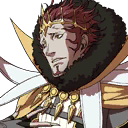
the antagonist driving the least weak arc of Awakening is surely one of its better ones, yes? well, kind of -- he’s more than a little pastiche and not enough consistency, but at least, when he’s on the scene, he chews the scenery so hard it bursts into color.
well, then! this time, I don’t even know if I’m directly missing a sample from fates, so that’s a wrap. what do you all think? are you charmed enough to ignore all of the innocents I just slaughtered, or are you having none of it and will put an end to my evil deeds? if the upcoming Three Houses is to have a Michalis, how despicably lovable should they be? well, think what you will -- the truth is, I’ve been onto you this entire time! of course you’ll share your thoughts in a reply or a reblog... right?
11 notes
·
View notes